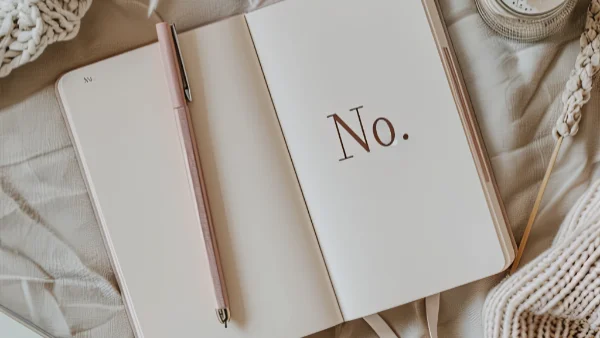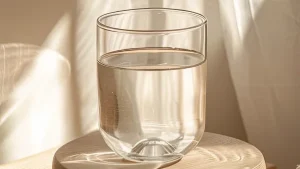
> Feeling burnt out? Subscribe to my Everyday Self-Care Newsletter for self-care tips and doable habits that support your well-being.
For most of my life, “no” felt like a dirty word. I’d over-explain, over-apologize, and sometimes say yes when I already knew I didn’t have the capacity.
The result? Quiet resentment. Burnout. A constant feeling of being stretched too thin, and it wasn’t just physical. It was emotional. Mental. Like my time and energy weren’t really mine.
I didn’t realize it at the time, but learning to say “no” was a form of self-care I desperately needed.
The Turning Point
I was already working on other self-care habits – how to start a phone free hour, drinking more water, one-line journaling. All tiny, manageable ways to reconnect with myself.
But they couldn’t compete with a schedule full of obligations I didn’t have the energy for. That’s when I realized: self-care isn’t just what you add, it’s what you stop doing, too.
So I started practicing the hardest thing of all: protecting my time.
What Saying “No” Looked Like (At First)
- Saying “Let me check and get back to you” instead of an automatic yes
- Pausing before agreeing to anything
- Practicing “No, thank you” in low-stakes moments (like turning down a store rewards card)
- Reminding myself that “No” is a full sentence
Each time I said it, even if my heart raced, I felt a little more grounded.
How It Changed My Relationship With Self-Care
Saying no didn’t give me more hours. But it gave me more choice. More space. More energy to focus on what actually helped me feel okay.
I started having time for my daily slow-down rituals, my tiny journaling check-ins, and moments to just sit quietly, not because I had to, but because I could.
Saying no wasn’t just about boundaries. It was about belief: that I deserved to protect my energy, not just give it away.
If You Struggle With Saying No
Start small.
Say it where it’s safe. Say it even when it’s shaky. You don’t have to be rude or cold. Just firm and kind.
Remember: “No” doesn’t make you selfish. It makes you honest. And honesty with yourself is one of the kindest forms of self-care there is.
> Want to dive deeper into this topic? I wrote a book that can help – Learn How To Say No is a practical, no-fluff guide to setting boundaries, protecting your energy, and saying no without guilt. It’s short, simple, and made for real life.
> This practice is part of my broader Everyday Self-Care Routine, which is all about small, sustainable habits that help you come back to yourself.


